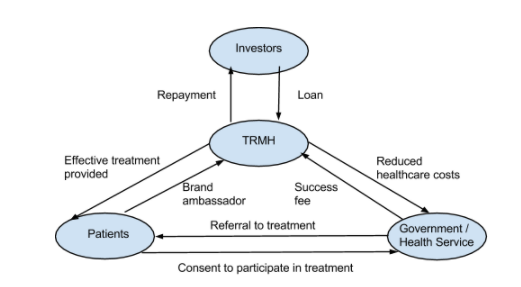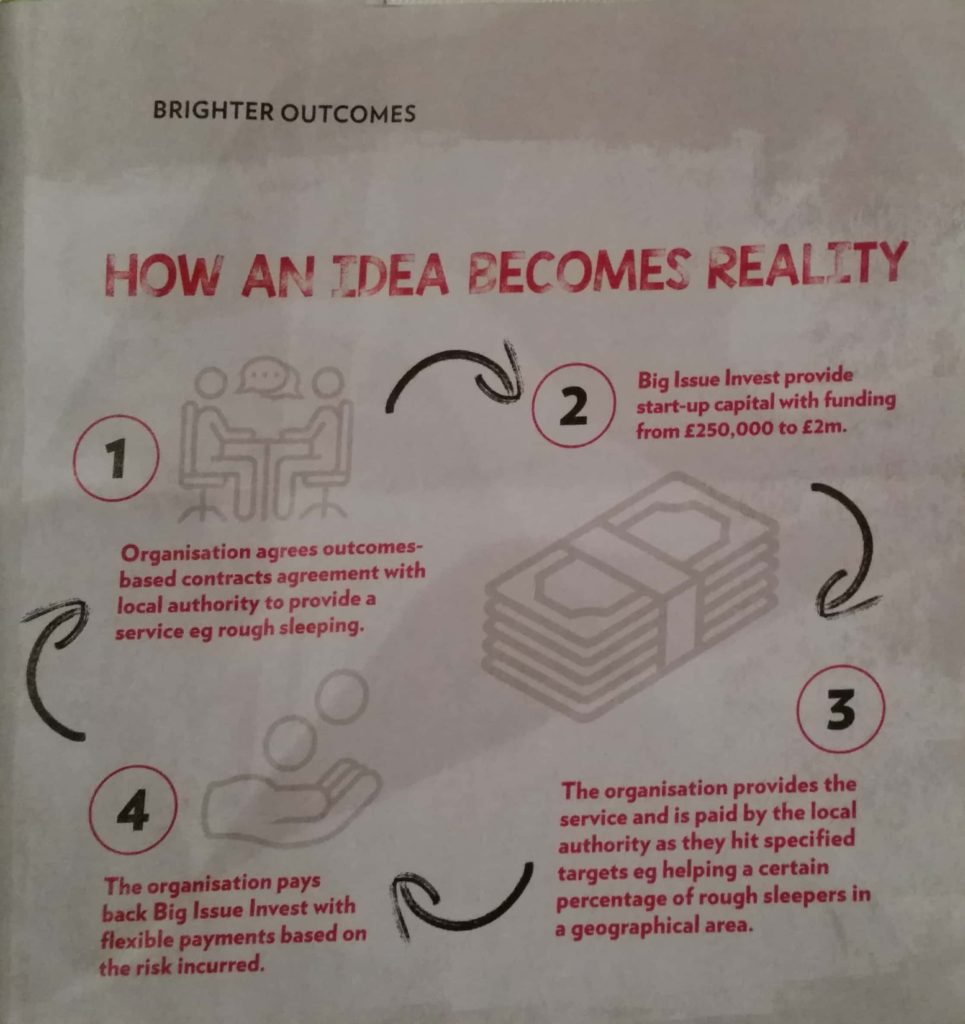The case for improved mental health services
The consequences of poor mental health on human well-being are becoming more widely understood, as are their impacts on other areas of society such as use of drugs, violence, lack of productivity, obesity, lack of creativity, unemployment, smoking and other addictions. Improvements in mental health can cause a cascade of positive multiplier effects throughout society.
Social Impact Bonds as a concept
As noted in my recent post on tackling homelessness, I am fascinated by the potential of Social Impact Bonds to help drive positive social change.
One idea that really resonates with me is the use of Social Impact Bonds to drive positive change in people’s mental health.
Inspiration for the idea
I was inspired by the potential for improvements years ago after reading Healing Without Freud or Prozac by the late Dr David Servan-Schreiber (which was once lent to me by the late Ismena Clout).
In the book, Dr Servan-Schreiber talks about combatting depression with the following:
- Meditation and heart coherence
- EMDR (Eye Movement Desensitization and Reprocessing)
- Maximising exposure to natural light
- Acupuncture
- Omega-3 Fatty Acids
- Exercise
- Social Interaction and Emotional Communication
Most of these activities can be undertaken by a beneficiary without any qualified medical assistance, which made me think that this would be an ideal area for a for-profit company or social enterprise to provide a service that would support sufferers of depression.
Indeed, people like Tony Robbins have companies focussed on this area with many of these areas being employed.
However, with Tony Robbins, the emphasis is on the beneficiary directly paying for services themselves. This means that many people that are not currently in a financial position to access the services can benefit.
Use of Social Impact Bonds to reward positive outcomes
What if a company or social enterprise could provide beneficiaries with all the benefits of this approach at no cost at the point of use but instead could be rewarded by a government or health service for delivering the beneficial outcomes?
I drafted this paper below on the back of the idea that Social Impact Bonds could be used to reward social enterprises for just this:
Concept Paper_ Social Impact Bonds for Improved Mental Health
Originally I designed this business so that it could be implemented by a Tony Robbins company because I am a big fan of the work they do to help people achieve transformational change in their lives. However, it could be undertaken by any organisation with a mission to help people make positive change in their own lives.
Below is a diagram explaining the value flows in the concept (note in this diagram I referred to beneficiaries as “patients”, which is not a terminology that I would use anymore):
Risks and risk management
One major risk of this approach is that it could contribute to “privatisation of the UK’s National Health Service (NHS) by stealth”, with private sector organisations slicing off more and more of the NHS’ workload and sweating the assets for profit in the way that UK train franchises have done.
This could be mitigated by the fact that a lot of these activities are things that can be undertaken by individuals without any form of medical intervention, such as regular exercise, socialising, and improved diet. Therefore these would fall outside of current NHS services and would carry a low risk of this.
Another challenge is whether or not the activities would count as, or have the perception of, being medical treatment and therefore need to be regulated.
For the same reasons above, I think a strong argument could be made that this is not the case. Effective protocols that signpost beneficiaries to NHS services should be in-built so that the NHS and other authorities can have confidence that the social enterprise is not masquerading as a healthcare provider, but a “wellbeing-support provider”.
UK Government support
It’s interesting to see that the UK Government also sees the potential for Social Impact Bonds to stimulate change, as they have launched an Inclusive Economy initiative that includes a funding stream for Social Impact Bonds.
Contact me to discuss
I’d welcome any contact via my contact page from anyone interested in starting a social enterprise in this field. I’d be happy to share my ideas for potential methodologies that exist for the service, as well as potential funding streams to launch a pilot project.

